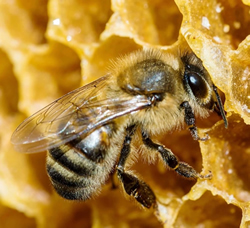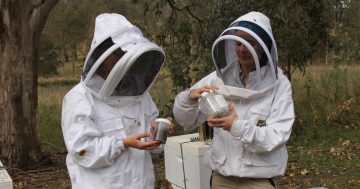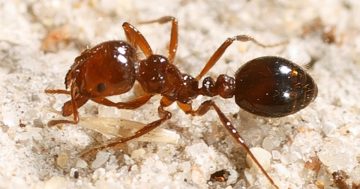 The Department of Agriculture and Fisheries (DAF) has established a new biosecurity zone to protect further the State’s beekeeping industry from the threat of varroa mite.
The Department of Agriculture and Fisheries (DAF) has established a new biosecurity zone to protect further the State’s beekeeping industry from the threat of varroa mite.
Announced by the Minister for Agricultural Industry Development, Mark Furner said the new step would help honey producers safeguard their livelihood.
“Queensland is free of varroa mite and we want to keep it that way,” Mr Furner said.
“All of Queensland is now a designated biosecurity zone and anyone wishing to bring in bees, hives, used beekeeping equipment or bee products (including unprocessed honey) from states or territories where varroa mite has been found will need a permit,” he said.
“Entry from States or Territories declared free of varroa mite will be allowed without a permit, providing any hives are secured to prevent bees from escaping or entering other hives while in transit.”
President of the Queensland Beekeepers Association, Jacob Stevens welcomed the new zone as a positive step forward for the Association’s members and industry colleagues who had been caught up during the closure of State borders.
“Varroa mite is a significant threat to honey bees and all those dependent on a healthy honey bee industry,” Mr Stevens said.
“The reopening of borders under a strict permit and compliance system will provide beekeepers with a means to migrate bees again on the back of another challenging season for the state’s beekeepers,” he said.
Mr Furner suggested beekeepers continue monitoring their hives and report unexpected hive deaths, deformed bees, parasites, poor brood patterns and dead brood to Biosecurity Queensland.
“The more checks and reports made by commercial and recreational beekeepers, the more data is available to support Queensland’s claim of area freedom from varroa mite,” the Minister said.
He said if a beekeeper thought he or she had a varroa mite to take a photo with the mite’s legs down, or up on the tip of a cotton bud against a white background.
“Save the sample. Place the mite in a sealable container in the freezer (and) report it by calling 13 25 23 or email [email protected].
Detailed information on how to check hives and report results can be found at this PS News link and this link.




